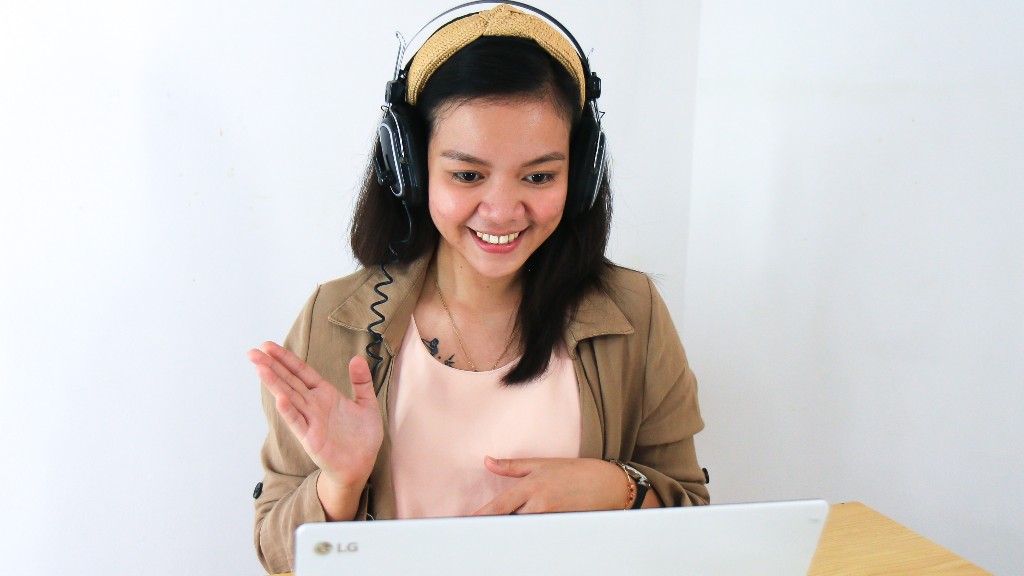Record-breaking enrolments on UOC language courses due to the pandemic
This academic year has seen 5,000 more enrolments than last year by both students studying for bachelor's degrees at the University and by external students
In the academic year 2020-21, the Centre for Modern Languages of the Universitat Oberta de Catalunya (UOC) had a total of 18,040 enrolments, a record number since the language school was first established in 2009. This is around five thousand more enrolments than last year, with 12,944. The UOC's experts attribute this phenomenon to the COVID-19 pandemic, which has led to changes in habits and a boom in online teaching.
The additional enrolments include both students studying for UOC degrees and external students accessing the Centre for Modern Languages through UOC X - Xtended Studies. The number of enrolments has increased by over three thousand in the former case and by about two thousand in the latter.
"Finding themselves with more time as a result of lockdown, many students of UOC bachelor's degrees have decided to make more progress and enrol for more credits, in many cases in language subjects," explained Jesus De Molina.
As regards external students, UOC professor and director of the Centre for Modern Languages Joseph Hopkins explained that the pandemic has been just as important a factor: "It has forced many people to take the route of online teaching. If they were previously reluctant, maybe now they have seen that they really are learning".
Hopkins highlighted that online language teaching has been greatly benefited by advances in technology: "If a quarter of a century ago, when we took the first steps to teach languages at the UOC, the idea of really working on improving students’ oral skills seemed like pure fantasy, thanks to the current technological advances, it is no longer a problem."
In relation to this, De Molina stressed that, in the current ever-changing circumstances, the fact that the online learning offered by the UOC is asynchronous - i.e. there are no fixed schedules - is another advantage. He also believes that the ability to study from home has probably given greater confidence to those wishing to make progress with their language studies.
Hopkins, for his part, recalled that this has not been the first global crisis resulting in a higher enrolment rate at the Centre for Modern Languages: "The economic crisis of 2008 also led to a significant boom in students wishing to study not just English but also German and Chinese."
In fact, the number of student enrolments was about 15,000 in 2011 and 2012. After that, they fell and remained stable at between 11,000 and 13,000, until the boom of this current academic year, which has also led to more course instructors being recruited.
English and Catalan courses account for 85% of enrolments
In terms of figures by language, something that remains unchanged year after year is the fact that, as highlighted by the director of the Centre for Modern Languages, English and Catalan together account for around 85% of enrolments. Hopkins explained that, this year, "in addition to the rise in the number of students enrolling for English courses, we have seen more people enrolling for Catalan courses, because there are many public service exams for teaching staff, healthcare staff, fire fighters and police officers, among others".
Language students’ place of residence has also remained constant: 80% of them are in Catalonia, 15% elsewhere in Spain, and about 5% in other countries.
First Spanish language and language teaching courses
The academic year 2020-2021 was the first year in which Spanish for beginners was made available at the UOC, with 17 people enrolled. The plan is to gradually expand this to offer intermediate level A2 in this language.
In addition, "we want to become a training centre for language teachers. This is why the Master's Degree in Technology-Mediated Language Teaching and Learning was launched this academic year, with around 200 students," Hopkins explained.
The Centre for Modern Languages currently offers seven languages: English, French, German, Catalan, Spanish, Japanese and Chinese. Both Hopkins and De Molina expect the current enrolment figures to be maintained or even to increase slightly this coming academic year.
Experts UOC
Press contact
-
Editorial department
